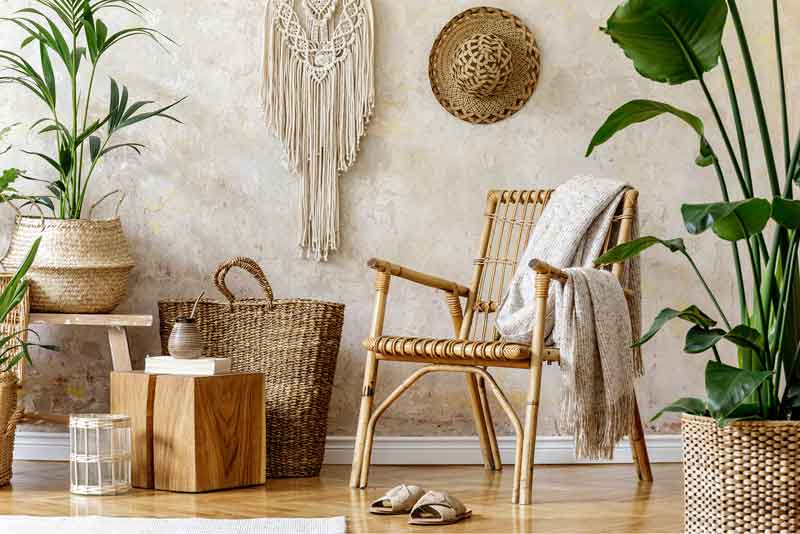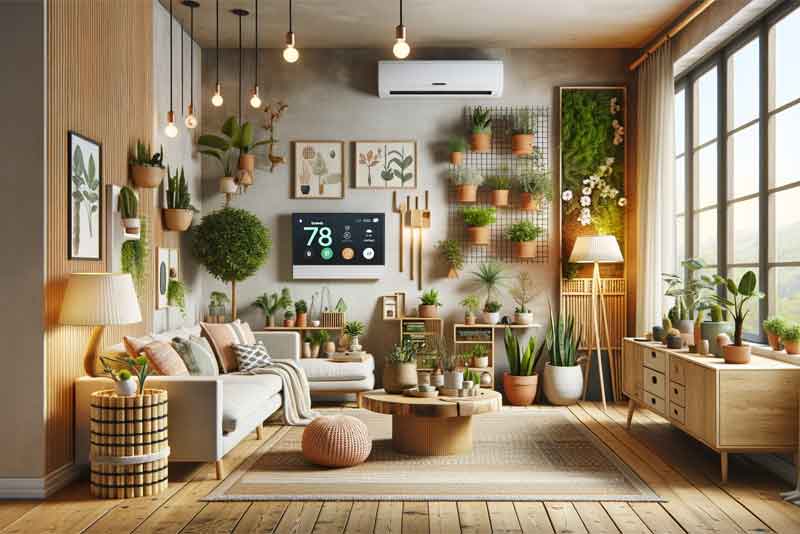Sustainable home décor not only enhances the aesthetic appeal of your home but also significantly contributes to environmental conservation. This guide provides insights into integrating eco-friendly materials and embracing brands that champion sustainability, allowing you to create a stylish yet responsible living environment.
Eco-Friendly Materials and Brands
Choosing eco-friendly materials can significantly reduce your ecological footprint. Opt for options like bamboo, which regenerates quickly and offers great durability and versatility for various home applications. Recycled metals and glass not only add a contemporary touch but also save resources and decrease waste. An excellent way to include sustainable practices in home lighting is to install energy-efficient LED chandeliers that blend elegance with environmental consciousness.
- Bamboo flooring. Durable, sustainable, and stylish, bamboo is an excellent alternative to traditional hardwood.
- Recycled glass tiles. Perfect for creating unique, reflective surfaces in kitchens and bathrooms.
- Cork wall panels. Sustainable cork provides superior insulation and soundproofing, ideal for creating quiet, eco-friendly spaces.
- Organic fabric curtains. Opt for curtains made from organic cotton or hemp to reduce indoor air pollutants and support sustainable farming practices.
These materials support sustainable industries while ensuring that your home decor is environmentally friendly. Companies like West Elm and Pottery Barn now feature eco-friendly lines, enabling consumers to make responsible decorating choices easily.

DIY Projects with Recycled Materials
Engaging in DIY projects allows for a personal touch in your decor while reducing environmental impact. By using recycled materials, you can transform ordinary items into unique decorative pieces, thus minimizing waste and conserving natural resources.
- Wine cork coasters. Create unique, functional coasters by slicing corks and assembling them into decorative patterns, perfect for adding a rustic touch to your coffee table.
- Jar herb gardens. Repurpose old glass jars into small herb planters, adding both greenery and utility to your kitchen windowsill.
- Pallet furniture. Salvage old pallets to craft stylish, rustic furniture such as beds, tables, or shelving units.
- T-shirt yarn rugs. Upcycle unused t-shirts into yarn, then weave or crochet them into colorful, comfortable rugs suitable for any room.
These projects not only allow you to tailor your living space to your tastes but also encourage a sustainable lifestyle. By choosing to upcycle, you actively reduce waste and promote environmental awareness, setting a positive example for others to follow in home decorating. Through such creative endeavors, you can demonstrate how individual actions contribute significantly to environmental conservation.



